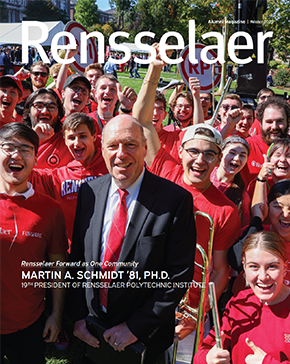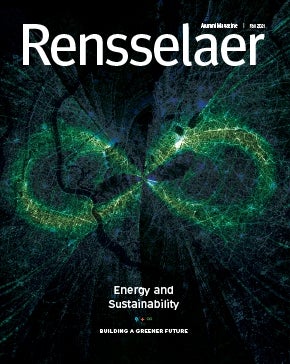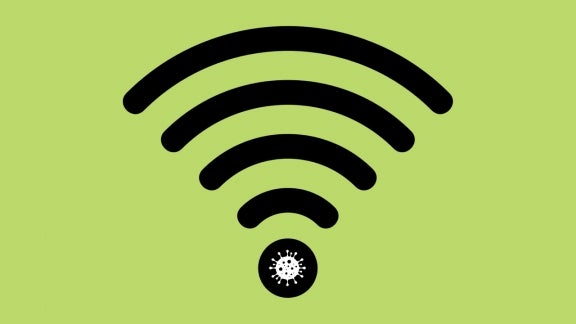
Heparin May Effectively Neutralize Virus That Causes COVID-19

A common drug, already approved by the Food and Drug Administration (FDA), may also be a powerful tool in fighting COVID-19.
SARS-CoV-2, the virus that causes COVID-19, uses a surface spike protein to latch onto human cells and initiate infection. But heparin, a blood thinner also available in non-anticoagulant varieties, binds tightly with the surface spike protein, potentially blocking the infection from happening. This makes it a decoy, which might be introduced into the body using a nasal spray or nebulizer, to run interference to lower the odds of infection. Similar decoy strategies have already shown promise in curbing other viruses, including influenza A, Zika, and dengue.
“We see this as part of a larger antiviral strategy,” says Robert Linhardt, professor of biocatalysis and metabolic engineering. “Ultimately ... there are many ways to combat a virus, and as we’ve seen with HIV, with the right combination of therapies, we can control the disease.”
To infect a cell, a virus must first latch onto a specific target on the cell surface, slice through the cell membrane, and insert its own genetic instructions, hijacking the cellular machinery within to produce replicas of the virus. But the virus could just as easily be persuaded to lock onto a decoy molecule, provided that molecule offers the same fit as the cellular target. Once bound to a decoy, the virus would be neutralized, unable to infect a cell or free itself, and would eventually degrade.
“This isn’t the only virus we’re going to confront in a pandemic,” says Jonathan Dordick, a chemical and biological engineering professor who is collaborating with Linhardt to develop the decoy strategy. “This is a pathway forward. We need to be in a position where we understand how things like heparin and related compounds can block virus entry.”















